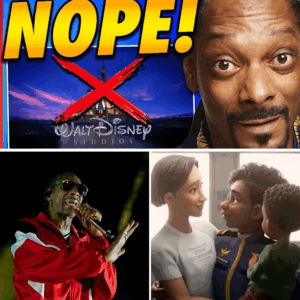In a stunning turn of events, 2025 has become the year that shattered a 14-year streak of superhero movies soaring past the $700 million mark at the global box office. Once the undisputed kings of cinema, superhero films from both Marvel and DC have stumbled, with no title—despite high expectations—reaching this once-routine milestone. From James Gunn’s Superman to Marvel’s The Fantastic Four: First Steps, Captain America: Brave New World, and Thunderbolts, the genre’s biggest releases have fallen short, sparking talk of a “superhero movie curse.” As audiences grow increasingly selective and the industry grapples with post-pandemic shifts, the question looms: is this a temporary slump or a sign that the superhero genre’s dominance is fading?
The Golden Era of Superhero Films
For over a decade, superhero movies were Hollywood’s golden goose. Between 2015 and 2019, 83% of superhero films grossed over $500 million globally, with many, like Avengers: Endgame ($2.8 billion), Avengers: Infinity War ($2 billion), and Spider-Man: No Way Home ($1.9 billion), soaring into billion-dollar territory. The Marvel Cinematic Universe (MCU) led the charge, with eight of the top ten highest-grossing superhero films of all time, while DC’s hits like The Dark Knight ($1 billion) and Aquaman ($1.1 billion) proved the genre’s universal appeal. Social media platforms like X buzzed with excitement, with fans camping out for premieres and dissecting every trailer. The formula was simple: iconic characters, epic stakes, and interconnected storytelling packed theaters worldwide.
This golden era peaked in 2019, when Marvel alone released three billion-dollar films: Avengers: Endgame, Captain Marvel, and Spider-Man: Far From Home. Disney’s dominance, bolstered by its acquisition of Marvel and Lucasfilm, seemed unbreakable. Even lesser-known heroes like Black Panther and Aquaman became cultural phenomena, proving that superhero films could transcend niche fandoms. The promise of event-level spectacles, combined with pre-COVID moviegoing habits, made $700 million a baseline for major releases. But in 2025, that benchmark has become an elusive ceiling, leaving studios and fans reeling.
2025’s Box Office Busts
The superhero genre’s struggles in 2025 are stark. James Gunn’s Superman, the flagship launch of the rebooted DC Universe, has been the year’s top performer, grossing $604 million globally by late August. Starring David Corenswet as the Man of Steel, the film earned $343.6 million domestically and $256 million internationally, surpassing Captain America: Brave New World ($415 million), Thunderbolts ($382 million), and The Fantastic Four: First Steps ($490 million). While these numbers are respectable, none have crossed the $700 million threshold, a milestone every major superhero film achieved annually from 2011 to 2024. The failure to reach this mark has fueled speculation about a “curse” plaguing the genre.
Superman, despite critical acclaim and a strong domestic performance, fell short of expectations due to weaker international numbers. Analysts point to its $225 million production budget and $125 million marketing costs, requiring at least $600 million to break even. While it crossed this threshold, it’s nowhere near the $1 billion-plus hauls of past DC hits like The Dark Knight or Man of Steel ($668 million, unadjusted). The Fantastic Four: First Steps, Marvel’s attempt to relaunch the iconic team, earned $257.3 million domestically and $232.8 million internationally, but steep second-weekend drops signaled audience disinterest. Captain America: Brave New World and Thunderbolts were even less successful, with reports indicating both lost money due to high budgets and lackluster global appeal.
Social media reactions have been brutal. One X user lamented, “Superman can’t even hit $700M? This is the guy who started it all. Superhero movies are cooked.” Another wrote, “Marvel’s pumping out flops like Thunderbolts and Fantastic Four while DC’s barely keeping up. What happened to the billion-dollar days?” These sentiments reflect a growing perception that superhero films, once a sure bet, are losing their grip on audiences.
The Roots of the “Curse”
Several factors have converged to create this so-called superhero movie curse in 2025. First, superhero fatigue is no longer a theory but a reality. After years of oversaturation—33 MCU films and countless Disney+ series since 2008—audiences are growing weary of convoluted multiverse plots and recycled formulas. Posts on X frequently cite “multiverse fatigue,” with fans craving standalone stories over interconnected sagas. The Fantastic Four: First Steps, despite a strong cast led by Pedro Pascal, was criticized for leaning too heavily on multiverse elements, echoing complaints about Doctor Strange in the Multiverse of Madness ($955 million in 2022 but divisive among fans).
Second, post-COVID moviegoing habits have reshaped the industry. The pandemic accelerated the shift to streaming, with Disney+ and other platforms offering films shortly after theatrical releases. Superman’s early digital release on August 15, just a month after its July 11 premiere, likely dampened its theatrical run. Fans on social media noted, “Why go to theaters when it’s on streaming so fast?” This trend has hit superhero films particularly hard, as their high budgets—often exceeding $200 million—require massive theatrical hauls to turn a profit. In 2023, superhero movies collectively grossed just $1.3 billion in the U.S. and Canada, a far cry from 2019’s $4 billion.
Third, international box office declines have crippled the genre’s earning potential. In the 2010s, markets like China added hundreds of millions to superhero film totals, with Avengers: Endgame earning $614 million there alone. But in 2025, Chinese audiences have largely lost interest in American blockbusters, favoring local films. Superman earned just $23 million in China, compared to Man of Steel’s $63 million (unadjusted) in 2013. The Fantastic Four: First Steps similarly struggled, with only 47% of its $468 million global total from international markets. One X user pointed out, “Superhero movies used to bank on China for that extra $200M. That’s gone now.”
Finally, economic pressures are squeezing audiences. Rising ticket prices ($12-$20 on average) and the cost-of-living crisis have made moviegoing a luxury for many. With streaming subscriptions costing less than a single theater visit, families are opting to wait for home releases. This shift has hit high-budget superhero films hardest, as they rely on repeat viewings and global appeal to justify their costs. Disney’s $11 billion in streaming losses since 2019 have further strained its ability to invest in theatrical quality, leading to perceptions of rushed or uninspired projects.
Studio Responses and Spin
Both Marvel and DC have tried to spin their 2025 performances as victories. James Gunn, co-head of DC Studios, called Superman a “major hit,” emphasizing its domestic success and critical praise. Disney CEO Bob Iger similarly touted Thunderbolts as a success early in its run, despite its $382 million global total falling short of its $425 million breakeven point. However, these claims haven’t silenced critics. Analysts argue that the studios’ reliance on pre-existing IP, once seen as a safe bet, is backfiring. “Hollywood thought superheroes were bulletproof,” one industry observer noted on X. “2025 shows even Superman can flop if you don’t nail the story.”
Disney’s broader struggles add context to the curse narrative. The company’s 2023 losses neared $1 billion, with films like The Marvels ($237 million loss) and Indiana Jones and the Dial of Destiny ($143 million loss) underperforming. Marvel’s 2025 slate was meant to rebound from these setbacks, but Captain America: Brave New World’s $180 million budget and Thunderbolts’s high costs proved too steep for their box office returns. DC, meanwhile, is banking on Superman to launch its rebooted universe, but its failure to hit $700 million has raised doubts about the franchise’s momentum.
Can the Curse Be Broken?
Despite the gloom, there’s hope for superhero films. Deadpool & Wolverine in 2024 proved the genre’s potential, grossing $1.3 billion globally with its irreverent humor and star power. Superman’s strong domestic performance and positive reviews suggest that well-crafted stories can still resonate. The upcoming Spider-Man: Brand New Day (July 2026) is a potential game-changer, given Spider-Man’s track record—No Way Home earned $1.9 billion in 2021. However, its rumored multiverse-heavy plot and high budget could risk repeating 2025’s mistakes.
To break the curse, studios must adapt. Fans on X have called for simpler, character-driven stories over sprawling crossovers. DC’s reboot, led by Gunn and Peter Safran, aims to integrate films and TV shows more cohesively, potentially avoiding Marvel’s oversaturation pitfalls. Marvel, meanwhile, is scaling back its Disney+ output to focus on theatrical quality, with Avengers: Doomsday (December 2026) poised as a make-or-break moment. Competition between the MCU and DCU could also spark innovation, as both studios vie for audience attention.
Conclusion
The “superhero movie curse” of 2025, where no film cracked $700 million, marks a turning point for the genre. Superhero fatigue, streaming shifts, international declines, and economic pressures have exposed vulnerabilities in a once-invincible industry. While Superman and The Fantastic Four: First Steps showed glimmers of potential, their inability to reach past benchmarks underscores the need for change. As Marvel and DC look to 2026, with Spider-Man: Brand New Day and Avengers: Doomsday on the horizon, they must prioritize storytelling over spectacle to win back audiences. The superhero genre isn’t dead, but its days of guaranteed billion-dollar hauls may be. For now, the curse looms large, challenging Hollywood to rethink its approach to capes and tights.





